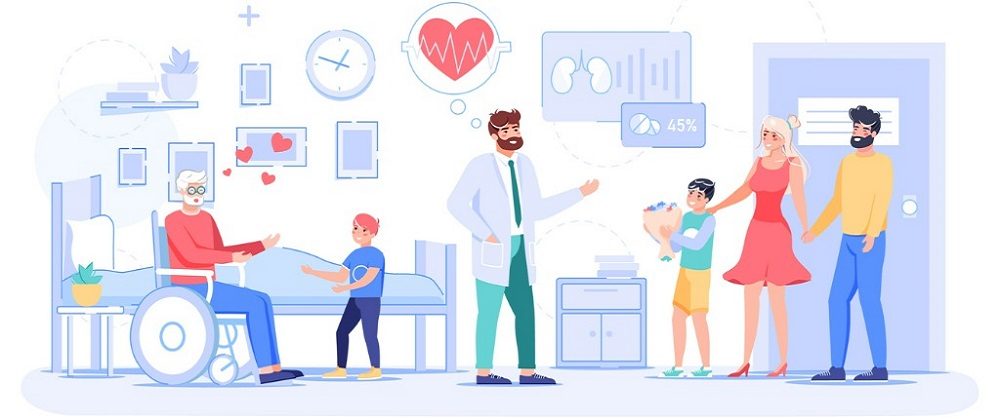With content from ASHA’s 19 Special Interest Groups, every issue of Perspectives has something for any ASHA member, no matter where your interests lie! Affiliates of any SIG can read content from all 19 SIGs, giving you access to hundreds of articles a year. We’ve highlighted just a few of the 30+ articles in this month’s issue of Perspectives below.
Counseling and Rehabilitation in Traumatic Brain Injury
A forum from Special Interest Group 2 (Neurogenic Communication Disorders) includes four articles on the theme of “Counseling in Traumatic Brain Injury.” Three articles look at the role of the speech-language pathologist (SLP) when working with people who have mild cognitive impairment, Alzheimer’s disease, and aphasia, as well as their families. Then, Rothbart and Sohlberg explain how SLPs can encourage resilience in their clients, which they show is essential to the rehabilitation process.
Two more articles from SIG 2 highlight the effects of blast injury on military veterans and their caregivers. First, Norman and colleagues look at veterans with and without blast traumatic brain injuries (TBIs) to compare the effects of blast TBIs on communication disorder diagnoses. Then, Cord et al. feature a case report of a service member with polytraumatic injuries from a blast explosion, highlighting interdisciplinary care.
Contemporary Issues in CSD
Two of the most talked-about topics in the ASHA Journals at the moment are the effects of COVID-19 on the professions and the need for diversity, equity, and inclusion in communication sciences and disorders. Three articles in the October issue of Perspectives focus on these topics.
First, Grieco-Calub looks at how face masks—one of the most effective ways of stopping transmission of COVID-19—impact face-to-face communication. She explains that face masks may place individuals with hearing, speech, and language disorders at greater risk for communication problems in their daily lives and provides tips on working with clients to overcome the negative effects of face masks.
Later, a commentary by Kearns and colleagues focuses on “Quality in the Time of Chaos,” written in response to COVID-19 but with broader implications. Focusing on students and professors in the Republic of Ireland at the onset of the pandemic, the authors write that “our struggles and successes during this challenging time have highlighted the importance of relationships and peer support in professional education and practice” (p. 1310).
Additionally, Harris and Van Horne surveyed SLPs who are Black and SLPs who are White about their clients and the books they use with children under 9. The authors found that although both groups recognized the importance of selecting diverse books, Black SLPs were more likely to select books with diverse protagonists.
For more information on Perspectives, plus other exclusive benefits of being a SIG affiliate, check out ASHA’s SIG page. You can explore the entire special issue here, or look below for a list of all the articles mentioned in this blog post.
References
Cord, L. L., Rajpal, V. K., & Solomon, N. P. (2021). Dysphagia management in military service members with polytrauma: A overview and case report. Perspectives of the ASHA Special Interest Groups, 6(5), 1033–1046. https://doi.org/10.1044/2020_PERSP-20-00044
Grieco-Calub, T. M. (2021). COVID-19, face masks, and social interaction: How a global pandemic Is shining a light on the importance of face-to-face communication. Perspectives of the ASHA Special Interest Groups, 6(5), 1097–1105. https://doi.org/10.1044/2021_PERSP-21-00037
Harris, S., & Owen Van Horne, A. J. (2021). Speech-language pathologist race, but not caseload composition, is related to self-report of selection of diverse books. Perspectives of the ASHA Special Interest Groups, 6(5), 1263–1272. https://doi.org/10.1044/2021_PERSP-20-00280
Hunting Pompon, R. (2021). Basic counseling skills: Working with people with aphasia and their families. Perspectives of the ASHA Special Interest Groups, 6(5), 1003–1014. https://doi.org/10.1044/2021_PERSP-20-00298
Kearns, A., Gallagher, A., & Cronin, J. (2021). Quality in the time of chaos: Reflections from teaching, learning and practice. Perspectives of the ASHA Special Interest Groups, 6(5), 1310–1314. https://doi.org/10.1044/2021_PERSP-21-00095
Lanzi, A. M., Ellison, J. M., & Cohen, M. L. (2021). The “Counseling+” roles of the speech-language pathologist serving older adults with mild cognitive impairment and dementia from Alzheimer’s disease. Perspectives of the ASHA Special Interest Groups, 6(5), 987–1002. https://doi.org/10.1044/2021_PERSP-20-00295
Norman, R. S., Swan, A. A., Jenkins, A., Ballard, M., Amuan, M., & Pugh, M. J. (2021). Updating and refining prevalence rates of traumatic brain injury-related communication disorders among post-9/11 veterans: A chronic effects of neurotrauma consortium study. Perspectives of the ASHA Special Interest Groups, 6(5), 1060–1072. https://doi.org/10.1044/2020_PERSP-20-00011
Rothbart, A., & Sohlberg, M. M. (2021). Resilience as a mainstream clinical consideration for speech-language pathologists providing post–acquired brain injury neurorehabilitation. Perspectives of the ASHA Special Interest Groups, 6(5), 1026–1032. https://doi.org/10.1044/2021_PERSP-20-00249
Schaffer, K. M., & Henry, M. L. (2021). Counseling and care partner training in primary progressive aphasia. Perspectives of the ASHA Special Interest Groups, 6(5), 1015–1025. https://doi.org/10.1044/2021_PERSP-20-00296









